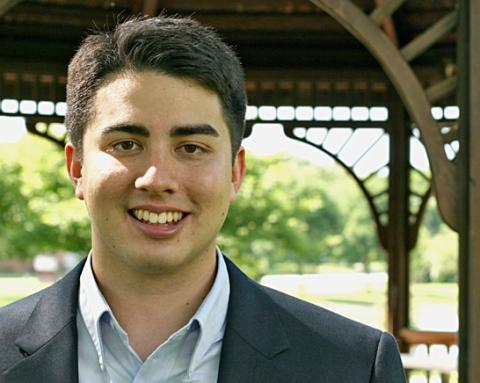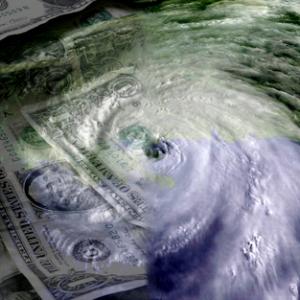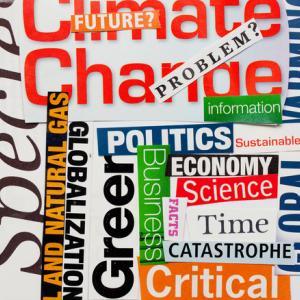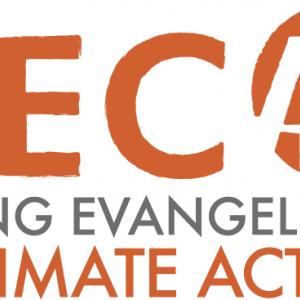
Ben Lowe, chair of A Rocha USA and co-chair of Christians for Social Action, is a doctoral candidate and NSF Fellow at the University of Florida.
Posts By This Author
Finding Our Way in Post-Trump America
PEOPLE ALL OVER the United States, and indeed the world, flooded city streets en masse when media outlets called the presidential election for Joe Biden on the fourth day after Election Day in November, four days of a nation holding its breath. In a year marked with repeated tragedy, a collective sigh of relief found form in marching bands and dance parties. Eight months into social isolation brought on by the coronavirus, many felt, if only for a moment, united. That was on a Saturday.
Then came Sunday. The prophetic word from pulpits across America: There can be no unity without justice. As of this writing, we know that more than 73 million Americans voted for Donald Trump—neighbors, family, members of our churches. We are a divided nation, a divided church. We reckon with this reality even as we look forward with hope to a new year and a different administration. As we begin to mend our social fabric and heal from the compounded traumas of 2020, Sojourners invited leaders from various sectors to offer their thoughts on the way forward. —The Editors
A Better Kind of Disaster Relief
“We can’t wait any longer,” Sen. Chuck Schumer declared to his colleagues on Monday. “Ninety-one days ago, Sandy struck a body blow against New York. Today, finally, we can strike back and give our people the help they need to get back on their feet.”
Shortly following, the U.S. Senate passed a long-awaited $50.5-billion disaster aid package that was then sent to the White House for President Obama’s signature.
Superstorm Sandy was the largest Atlantic hurricane on record, though it was only ever a Category 2 storm at its strongest and had weakened to a Category 1 storm by landfall. Nevertheless, due to its immense size, incredible amount of moisture, and record-breaking storm surge, it is estimated to be the second costliest storm in the history of the United States after Hurricane Katrina in 2005.
The Next Great Moral Movement
In my last column, "Three Numbers that Predict the Future of the Planet", I wrote about the state of the climate crisis and focused on three key data points that reveal a bleak, though not altogether hopeless, reality for us and for the rest of the planet.
As promised, this column is forward-looking and moves from describing the problem to prescribing the solution. To this end, I continue to draw heavily from the wisdom of Bill McKibben, Jim Ball, and other climate prophets who understand the times and are faithfully fighting to get us on the right track.
The way forward is not easy, but it will be good in the long run. Essentially, we need to set and enforce a limit on all remaining global warming pollution on the national and international scale, which will, we hope, keep warming to within 2oC. This will include some sort of pricing mechanism so that polluters have to take responsibility for paying for the costs of their own pollution. The problem is that we have not yet been able to muster the socio-political momentum necessary to reach these binding agreements. Turns out the polluters (largely the fossil fuel industry) don’t want to have to clean up after themselves. They’re also willing to fight with billions of dollars in campaign contributions and lobbying money to keep the status quo.
Three Numbers that Predict the Future of the Planet
The climate crisis is getting bad and we may be finally starting to notice. With increasingly crazy weather across America—scorching heat waves, massive fires, destructive derechos, devastating droughts—polls are starting to show a growing awareness of and concern for how our massive amounts of pollution are changing the weather and therefore changing our lives (mostly for the worse).
I know this is starting to sound alarmist and extreme. It should. Because reality is starting to get pretty desperate for those whose lives and livelihoods depend on a relatively stable and predictable climate. At the end of the day, that’s all of us. The first to get hit, however—and they are currently getting hit hard—are those who grow and raise our food (farmers, ranchers, fishermen, etc.), those who are economically and physically vulnerable (the elderly, sickly, homeless, etc.), and those who just happen to be in the wrong place at the wrong time (the victims of these storms and fires). And while we’re starting to feel the impact of climate change in the United States, our global neighbors in regions such as Africa have been the ones bearing the brunt of the suffering.
After decades of scientific studies and expert warnings, climate change is no longer something being debated; it is something being experienced. Let’s just hope we do what’s right to overcome this crisis before it is too late. Because “too late” may be coming a lot sooner than we realize, and “what’s right” may be a lot harder than we want to accept.
Young Evangelicals Stepping Up on Climate Action
Good news: Evangelical Christians are stepping back up to overcome the climate crisis.
After months of careful preparation, a new national advocacy initiative called Young Evangelicals for Climate Action (Y.E.C.A.) has just gone live.
In seeking to live as Christ’s disciples, Y.E.C.A. has come to see the climate crisis not only as a pressing challenge to justice and freedom, but also as a profound threat to “the least of these” with whom Jesus identifies in Matthew 25. The early effects of climate change are already impacting many of our neighbors, both in the U.S. and around the world, and our time to act is running short.




